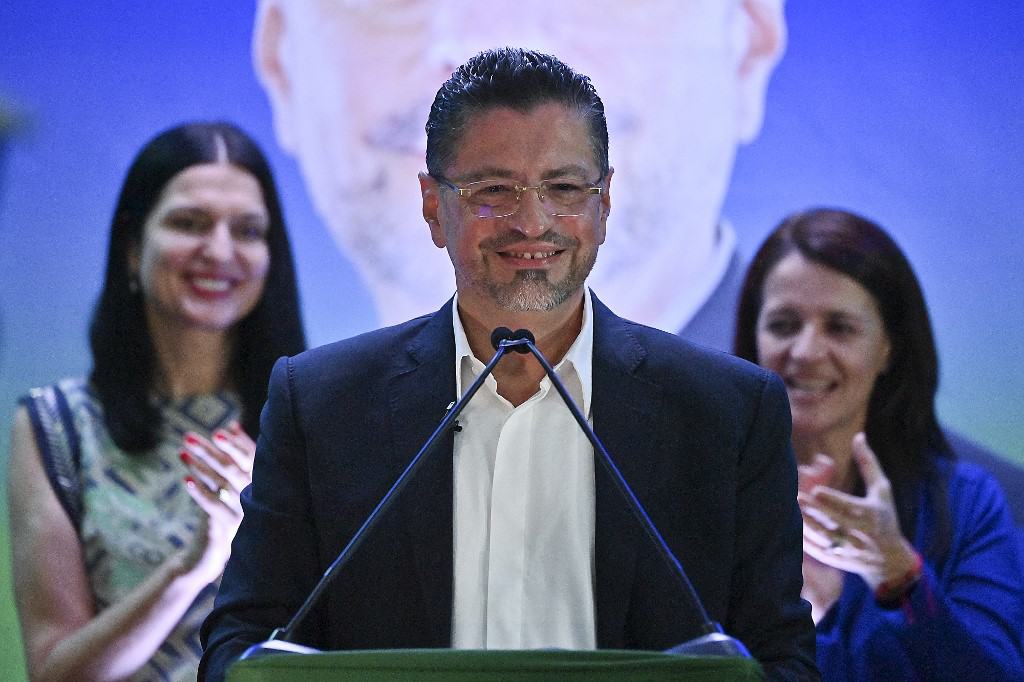Economist Rodrigo Chaves will becomes the 49th president of Costa Rica today with the main task of cleaning up the economy of one of the countries with the most stable democracies in Latin America.
The ceremony will be held in San José at 10H00 local time inside the Congress, unlike previous years, when it was held at the National Stadium. The King of Spain, Felipe VI, has confirmed his presence, among 97 international delegations.
The right-wing Chaves, 60 years old and with three decades of career in the World Bank, comes to power to try to solve the economic crisis of the country, with 23% of its population in poverty (6.30% in extreme poverty) and 13.6% unemployment, according to the National Institute of Statistics and Census (INEC).
With an economy driven mostly by tourism, Costa Rica was hard hit by the covid-19 pandemic.
“It is critical for the country that Chaves improves the economy. There have been many years of difficulties and politicians who are not convincing. This new government has an opportunity to do something different,” said Adrian Aguiluz, 35, a communicator and resident of the capital.
Recently Chaves said he hopes to “improve” the conditions of a 1.7 billion dollar loan with the International Monetary Fund (IMF), vital, according to the outgoing government of Carlos Alvarado, to keep the country’s finances afloat.
“This, it seems, will be a management concentrated on the economic part, the forte of the president-elect. It is also a national concern in all sectors. It seems that we are going to have a proposal for the reordering of public finances”, said political analyst Gina Sibaja.
Apologies for sexual harassment
According to experts, the population favored Chaves’ experience in economics, despite the fact that he has been sanctioned for sexual harassment of two subordinates within the World Bank. After his election, the new president offered his “apologies” for these facts.
In addition, he has already stated his opposition to environmental policies, in a country with a recognized global leadership on the subject and which has desisted from exploiting gas and oil.
Chaves has said that he will not ratify the Escazu Agreement, an important regional pact to protect environmental defenders.
The new president is a surprising figure in politics, as his only stint in state posts was for 180 days as finance minister, of the outgoing administration, between 2019 and 2020. He left the position due to differences with Alvarado.
A few months later he appeared as a presidential candidate with a proposal based on the economic recovery of this country with 5.2 million inhabitants.
Diplomacy
Currently, Costa Rica does not recognize the government of Daniel Ortega in Nicaragua, considering that his election for a fourth consecutive term lacked “democratic conditions” and has withdrawn its ambassador from Managua.
A few days after taking office, Chaves was in favor of reinstating his ambassador in Managua, although he later retracted his decision.
He also invited Juan Guaidó, whom half a hundred countries, including the United States, recognize as president of Venezuela instead of Nicolás Maduro, to Chaves’ inauguration. Guaidó has not confirmed his presence.
However, Chaves’ future foreign minister, André Tinoco, told local media that recognizing Maduro is under evaluation. Analysts believe that the new government may take surprising turns.
“We will see if there is not a narrative change regarding the cost of living and corruption as the main problems of the country, according to his campaign themes, because he could recrudesce his discourse and minimize it to procure new narratives,” said also analyst Eugenia Aguirre.
The President of Kosovo, Vjosa Osmani, and his counterparts from Colombia and Morocco, Ivan Duque and Aziz Akhannouch, respectively, are also confirmed for the inauguration ceremony.
The presidents of the Dominican Republic, Luis Abinader, and Panama, Laurentino Cortizo, are also confirmed. Both countries, together with Costa Rica, make up the Alliance for Democratic Development (ADD).
by David GOLDBERG






